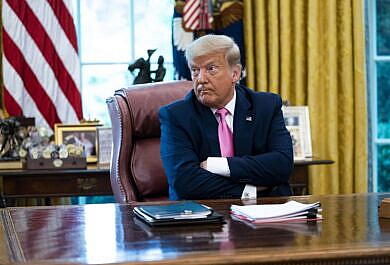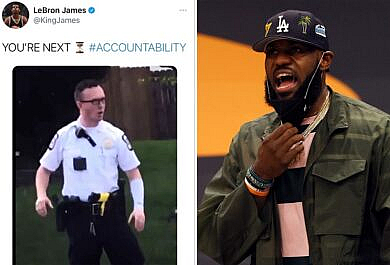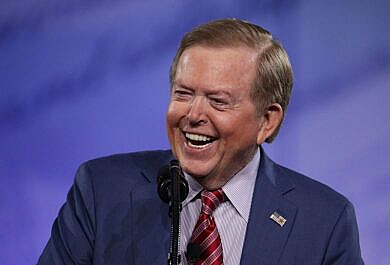Facebook’s Oversight Board, billed as a “Supreme Court” for the social media giant, upheld the company’s decision to keep Trump off the platform. Most voices on the left and right characterized the story as Facebook’s failings and the board “punting” its decision back to CEO Mark Zuckerberg.
Summary
Facebook’s Oversight Board upheld the tech giant’s ban of former President Donald Trump, citing posts in which he allegedly inciting violence “leading to the deadly Jan. 6th Capitol riot.”
- The Oversight Board also took Facebook to task, saying it created an “arbitrary penalty” and accused Facebook of being “lazy” for referring a “penalty suggestion that didn’t exist in their own rulebook” while giving Facebook six months to find a “proportionate response” to “Trump’s violations.”
- Trump responded by saying the decision was a “total disgrace” and that Big Tech will “pay a political price.”
- Unnamed sources within the Trump sphere told Politico they were expecting the ban to be lifted and acknowledged the damage it will cause to Trump’s political fundraising.
- As part of an effort to stop Big Tech from censoring conservative voices, Florida officials passed legislation that bans social media and tech companies like Facebook, Twitter, and Google from “deplatforming” political candidates and impose hefty daily fines if not following procedures in the law.
![]()
- CNN’s analysis highlighted Facebook’s obfuscation of responsibility in “punting” the decision on Trump’s ban to its Oversight Board, which said it couldn’t make the ban indefinite since there was no rule within the company’s guidelines to allow that.
- NPR reported on the political peril for Trump and other high-profile conservative politicians’ inability to access Facebook given its critical use as a fundraising tool.
- Vox provided coverage similar to CNN, saying Facebook’s Oversight Board opened up a pandora’s box and creates “more questions than it answers” as a result of its reprimand of Facebook for effectively breaking its own rules.
![]()
- Fox News media critic Howie Kurtz framed the story as a criticism of mainstream media, saying their addiction to keeping Trump in the headlines, whether it’s the Facebook story or the current feud with Congresswoman Liz Cheney, proves their “Trumpian hunger.”
- Newsmax interviewed a member of the Oversight Board, Stanford law professor Michael McConnell, who went into detail about Facebook’s failure to adhere to their own standards, and explained the real role of the board: “try to bring some consistency, including ideological consistency” to Facebook.
- The Federalist’s coverage was far more denigrating towards the Oversight Board, calling it a “rubber stamp” for Facebook and saying it was created “to give an imprimatur of respectability to Facebook’s blatant censorship of speech it dislikes.”
Author’s Take
Conservative politics and its views on technology are in an “awkward teenager” phase, as they struggle to determine what they view as the acts of a private company versus public speech in the public square and how those two ideas interact. Long the hallmark of conservative and Republican principles, leaving private sector actors to their own devices provided no laws are broken, is no longer an option for many conservative politicians. They argue the public square, and the free exchange and debate of ideas it demands, has extended into the digital space largely owned and operated by private companies. This is the central question on the right in this debate: where does the public square stop and the private sector begin?
Trump’s iron-clad grip on the media narrative with just 280 characters in a tweet says more about the media than it does Trump or Twitter. A Trump tweet was no different than a Trump campaign mailer or campaign email. But his tweets dominated headlines for five years, despite relatively few voters reading them.
Liberal politicians, on the other hand, have not changed their tune much. Facebook and Big Tech could be their natural allies if the goal is to snuff out wrongthink, but committed anti-corporatists like Massachusetts Senator Liz Warren are crusading on breaking up companies like Facebook and Amazon, saying they have “too much power over our society and our democracy.” Some liberal voices believe Facebook was a major reason for Trump’s rise in the first place.
Sometimes there are political issues in which the left and the right are so repelled by one another that they end up meeting on the back-end of the political spectrum and find similar solutions for different problems and with different motivations. It appears the nexus of social media and free speech could be one of them.
© Dallas Gerber, 2021





